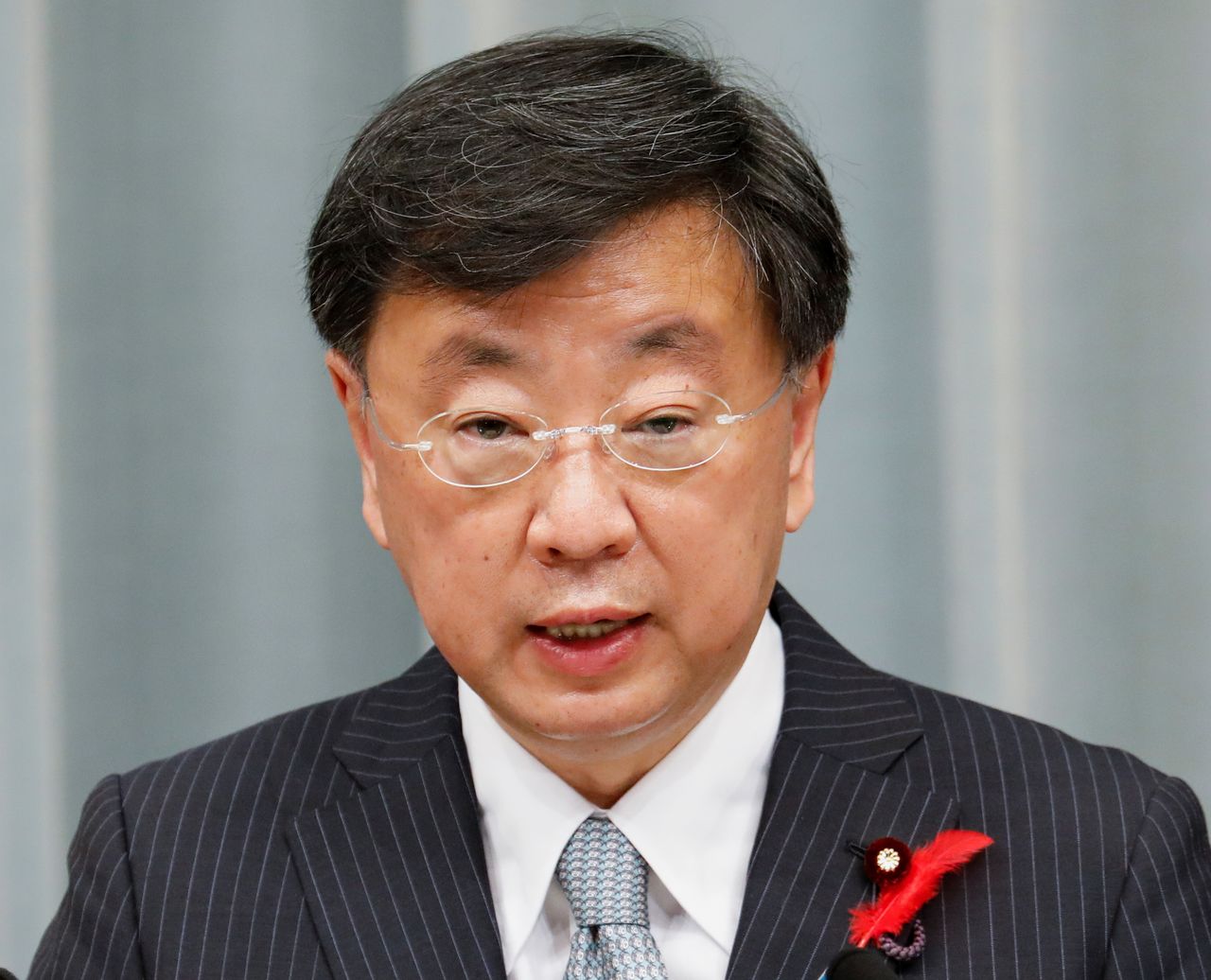Japan steps up rhetoric against sharp yen falls
Newsfrom Japan
- English
- 日本語
- 简体字
- 繁體字
- Français
- Español
- العربية
- Русский

FILE PHOTO: Japan's new Chief of Cabinet Secretary Matsuno Hirokazu announces new cabinet members at a news conference in Tokyo, Japan October 4, 2021. REUTERS/Kim Kyung-Hoon
By Leika Kihara and Tetsushi Kajimoto
TOKYO (Reuters) -Japan is watching recent falls in the yen carefully as sharp moves are "undesirable," the government's top spokesman said on Friday, stepping up official warnings to markets against pushing down the currency too much.
A weak yen has become a source of worry for policymakers as it inflates already surging fuel and raw material import costs, threatening to derail Japan's fragile economic recovery.
"Exchange-rate stability is important and sharp moves are undesirable," Chief Cabinet Secretary Hirokazu Matsuno told a news conference.
"The government will be vigilant to the impact currency market developments, including recent yen declines, could have on the economy."
Matsuno's warning against sharp yen falls was stronger than recent comments by Finance Minister Shunichi Suzuki, who said only that exchange-rate stability was important.
It also contrasted with the fairly sanguine view offered by Bank of Japan (BOJ) Governor Haruhiko Kuroda, who said on Friday that a weak yen was generally positive for Japan's economy.
The dollar stood at 118.775 yen on Friday, not far from the six-year high of 119.13 yen reached on Wednesday, as the BOJ left monetary policy ultra-loose in the wake of the U.S. Federal Reserve's decision to hike interest rates.
The yen has lost more than 3% to the dollar so far this month alone.
Kuroda said on Friday the BOJ will maintain ultra-easy policy even though rising fuel costs may drive up inflation to its 2% target from April, making it an outlier in a global wave of central banks tightening policy.
Kuroda, a former top currency diplomat, said the yen likely won't weaken further due to interest-rate differentials alone.
"A weak yen is basically positive for Japan's economy, though the direct impact on households and some companies may not necessarily be beneficial," he said.
Japanese policymakers have historically battled sharp yen rises that threaten to damage exports by issuing verbal warnings or currency intervention, while keeping a hands-off approach on yen falls.
But the yen's recent weakness has drawn concern from politicians, who worry about the damage it could do to households and retailers via higher fuel and food costs.
Kuroda said there was little the BOJ can do to arrest an unwelcome fall in the yen.
"Exchange rate policy falls upon the jurisdiction of the finance ministry. The BOJ does not need to, and does not have the power to influence exchange rates," he said.
(Reporting by Leika Kihara and Tetsushi Kajimoto; Additional reporting by Kantaro Komiya; Editing by Hugh Lawson and Kim Coghill)
(c) Copyright Thomson Reuters 2022. Click For Restrictions -
https://agency.reuters.com/en/copyright.html